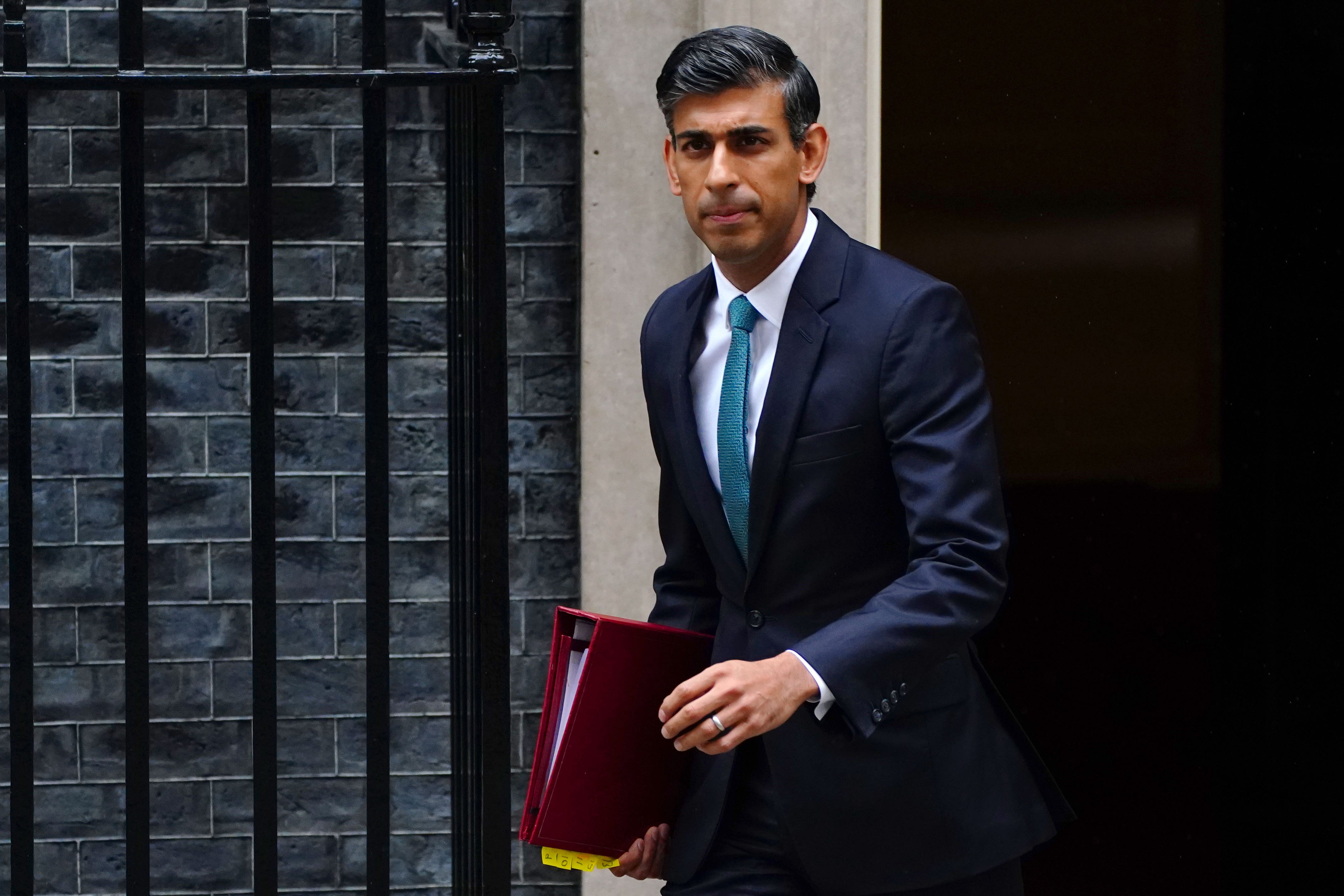Rishi Sunak is playing with fire with plans to overrule regulators
Ministers may not enjoy the consequences of playing at regulation, says James Moore


Rishi Sunak’s plans to allow ministers to overrule “independent” watchdogs are hugely controversial. But perhaps it’s worth considering how independent those watchdogs really are when government holds the power of appointment.
True, most selections are overseen by the Public Appointments Commission (but not all). The commission is not involved when it comes to the Bank of England’s governor or its deputy governors, one of whom runs the Prudential Regulation Authority.
The question of credibility ought to prevent them from appointing an old roommate from boarding school with whom they worked at a think tank. But ministers, and prime ministers, are still quite capable of pushing for some spectacularly misjudged postings. Witness Boris Johnson’s repeated attempts to install former Daily Mail editor Paul Dacre as chair of Ofcom; that job eventually went to former BBC chair Michael Grade, despite a committee of MPs warning of a “clear lack of depth” of knowledge about social media and online safety.
Even with less controversial hires, a government will lean towards the most politically acceptable among the “credible” candidates on a shortlist unless that list is so short there’s only one realistic choice (see the BBC’s classic Yes Minister for details of how that works).
Ministers and their aides also have ways of communicating their desires to the heads of “independent” public bodies and, at the very least, influencing their direction of travel. They know their phone numbers. Their calls are taken.
New Labour, for example, was very keen on the “light touch” regulation operated by the former Financial Services Authority because it steered business to London. Then the financial crisis came along. Oops.
That cataclysmic event, understandably, became infused into the DNA of Britain’s financial watchdogs and they subsequently became much more cautious. Banks found themselves required to obey strict capital rules. Their borrowers’ capacity to repay loans had to be more carefully tested. But recently those tests were eased, even with interest rates heading skywards. How did that decision come about? Who knows, or dares to dream?
It shows that Sunak isn’t as far removed from the destructive Johnson/Truss way of carrying on as we might have hoped
Some institutions are more capable of resisting ministerial pressure than others, especially if they have clout, as the Bank of England does. Witness its refusal to bail out Liz Truss by bringing its temporary intervention in the bond markets to a close.
Mr Sunak’s decision to press ahead with plans to allow ministers to overrule regulators clearly changes the calculus. If the Treasury wants insurers to be able to use their assets to invest in infrastructure projects – something that makes watchdogs queasy – it may be able to force their hands. The attractions of this to a government desperate to boost growth from any angle are obvious.
But has Mr Sunak really thought this through? Even with all the usual waffle about these interventions pertaining only to matters of “significant public interest” (as decided in Whitehall) and the use of the word “rare”, this will inevitably turn ministers into de facto financial watchdogs whether they like it or not.
You might think the City would be in favour of schemes like this and of a lighter touch more generally. But it is still shuddering from having lived through the consequences of a prime minister ignoring “experts” and their “orthodoxy” in favour of steering the great ship Britannia into an iceberg that everyone could see looming on the horizon.
This looks worryingly like another example of the same trend at work. It shows that Mr Sunak isn’t as far removed from the destructive Johnson/Truss way of carrying on as we might have hoped.
Sure, he’s more polished and more competent but that doesn’t much matter when a prime minister’s hubris gets the better of them, all the more so if they indulge in the sort of magical thinking of which we’ve had far too much of late.
One does rather wonder how it is that a man as apparently smart as Mr Sunak has failed to see the politically dangerous ground he is wandering into.
What happens when a minister overrules a regulator and it all goes wrong? Who does he imagine is going to get the blame? For years government press offices have been able to dismiss awkward questions by saying “that’s a matter for [unfortunate quango]”. That excuse won’t be available if ministers go blundering onto the regulatory field of play.
Mr Sunak is giving them swords at the expense of their shields.
The prime minister, a one-time City man, also appears not to have realised that what’s good for the goose is good for the gander. There are those critical of the “neoliberal consensus” who would very much welcome a left-of-centre government having similar powers, with the aim of making regulation a lot tougher. A regulatory cock-up bearing the fingerprints of one of Mr Sunak’s ministers will only hasten that.
Join our commenting forum
Join thought-provoking conversations, follow other Independent readers and see their replies
Comments
Bookmark popover
Removed from bookmarks